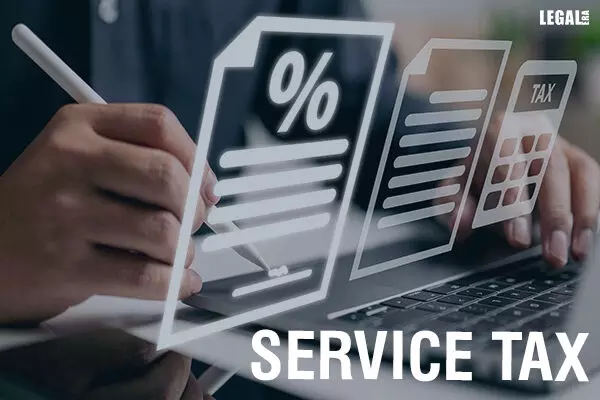- Home
- News
- Articles+
- Aerospace
- AI
- Agriculture
- Alternate Dispute Resolution
- Arbitration & Mediation
- Banking and Finance
- Bankruptcy
- Book Review
- Bribery & Corruption
- Commercial Litigation
- Competition Law
- Conference Reports
- Consumer Products
- Contract
- Corporate Governance
- Corporate Law
- Covid-19
- Cryptocurrency
- Cybersecurity
- Data Protection
- Defence
- Digital Economy
- E-commerce
- Employment Law
- Energy and Natural Resources
- Entertainment and Sports Law
- Environmental Law
- ESG
- FDI
- Food and Beverage
- Gaming
- Health Care
- IBC Diaries
- In Focus
- Inclusion & Diversity
- Insurance Law
- Intellectual Property
- International Law
- IP & Tech Era
- Know the Law
- Labour Laws
- Law & Policy and Regulation
- Litigation
- Litigation Funding
- Manufacturing
- Mergers & Acquisitions
- NFTs
- Privacy
- Private Equity
- Project Finance
- Real Estate
- Risk and Compliance
- Student Corner
- Take On Board
- Tax
- Technology Media and Telecom
- Tributes
- Viewpoint
- Zoom In
- Law Firms
- In-House
- Rankings
- E-Magazine
- Legal Era TV
- Events
- News
- Articles
- Aerospace
- AI
- Agriculture
- Alternate Dispute Resolution
- Arbitration & Mediation
- Banking and Finance
- Bankruptcy
- Book Review
- Bribery & Corruption
- Commercial Litigation
- Competition Law
- Conference Reports
- Consumer Products
- Contract
- Corporate Governance
- Corporate Law
- Covid-19
- Cryptocurrency
- Cybersecurity
- Data Protection
- Defence
- Digital Economy
- E-commerce
- Employment Law
- Energy and Natural Resources
- Entertainment and Sports Law
- Environmental Law
- ESG
- FDI
- Food and Beverage
- Gaming
- Health Care
- IBC Diaries
- In Focus
- Inclusion & Diversity
- Insurance Law
- Intellectual Property
- International Law
- IP & Tech Era
- Know the Law
- Labour Laws
- Law & Policy and Regulation
- Litigation
- Litigation Funding
- Manufacturing
- Mergers & Acquisitions
- NFTs
- Privacy
- Private Equity
- Project Finance
- Real Estate
- Risk and Compliance
- Student Corner
- Take On Board
- Tax
- Technology Media and Telecom
- Tributes
- Viewpoint
- Zoom In
- Law Firms
- In-House
- Rankings
- E-Magazine
- Legal Era TV
- Events
CESTAT: In Absence of Consignment Note, Goods and Transport Agency Services Not Liable For Tax

CESTAT: In Absence of Consignment Note, Goods and Transport Agency Services Not Liable For Tax
The appellant cited the provisions of the Finance Act of 1994, to explain the matter
The Delhi Bench of the Customs Excise and Service Tax Appellate Tribunal (CESTAT) has held that in the absence of a consignment note, services cannot be considered Goods Transport Agency (GTA) facilities, and service tax cannot be demanded.
The bench comprising Binu Tamta (Judicial Member) observed that the appellant ran a petrol pump outlet and transported petroleum pumps under the dealership of Bharat Petroleum Corporation Limited (BPCL), the service provider. The appellant also owned a commercial vehicle used for transporting diesel and gasoline from the BPCL premises to various filling stations.
BPCL issued a certificate stating that it paid a monthly service tax. As per the provisions of the Finance Act, 1994, it was liable to pay tax on services received under GTA. Since the liability was cleared by the service receiver, the appellant was not liable to again pay tax.
The appellant stated that the services provided by it were covered under Section 68(2), Chapter V of the Finance Act, read with the 20 June 2012 Notification No.30/2012-ST. As per the notification, the service receiver was liable to pay service tax under the reverse charge mechanism. However, it neither took service tax registration nor filed service tax returns.
The appellant explained that it owned the truck used for transporting diesel or gasoline, which were exempt from service tax. It stated that as per the provisions of the Finance Act, to constitute a GTA, the service provider was to issue a consignment note, which was missing.
Thus, the tribunal held that the issuance of a consignment note was a prerequisite for taxability under the GTA services. The appellant could not be treated as a GTA service and was exempted from paying service tax.



